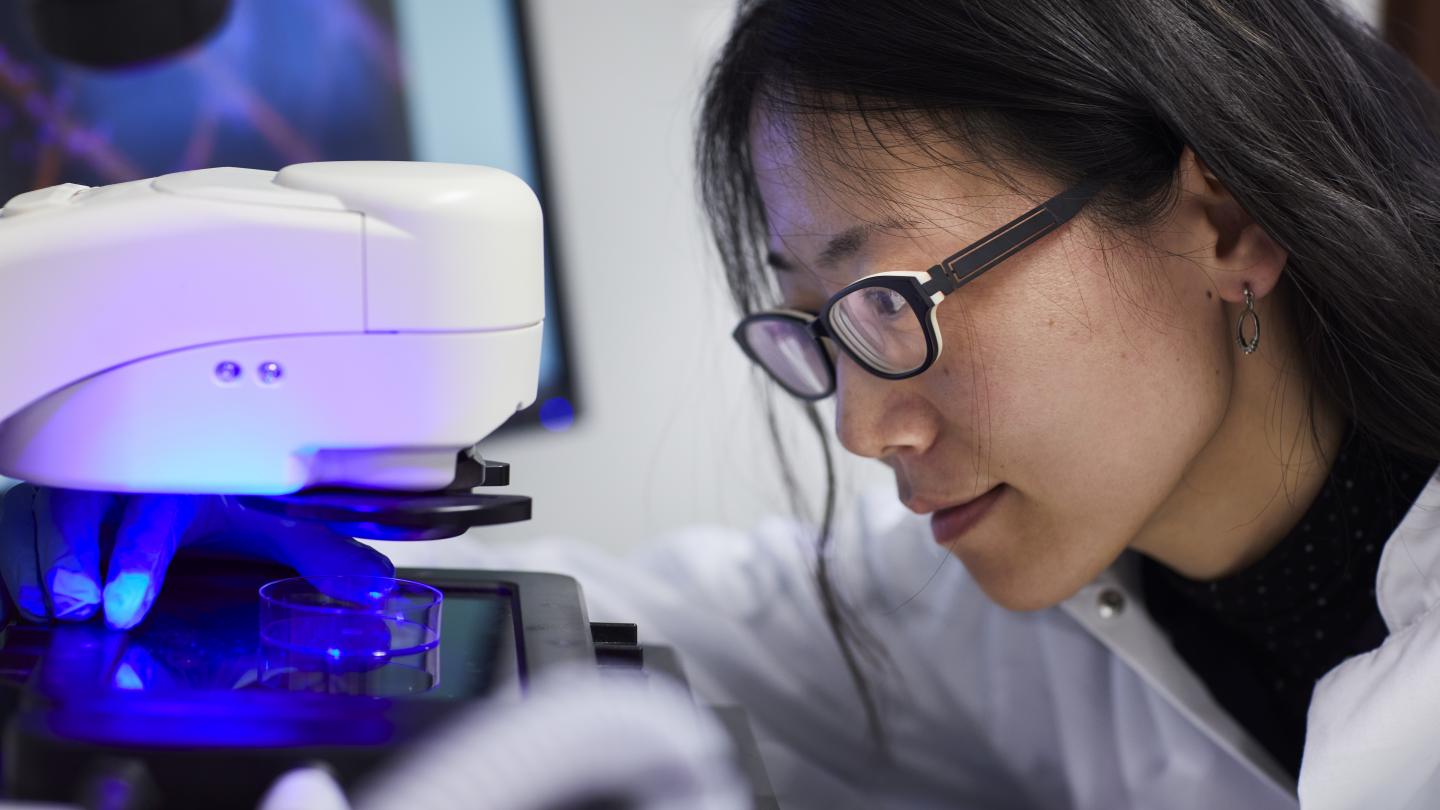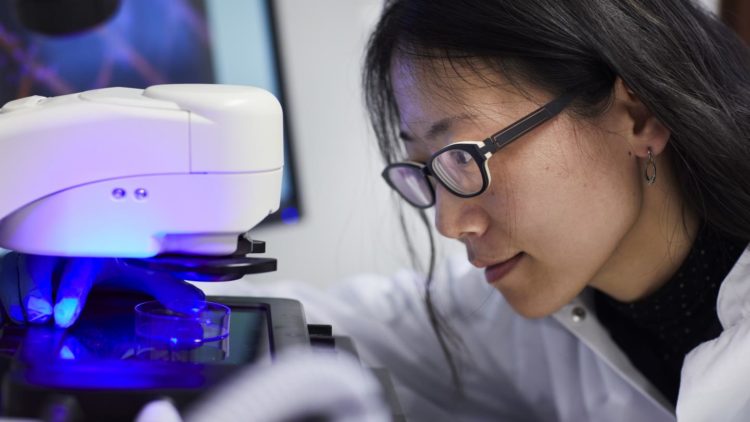Associate Professor Menglin Chen aims to develop a new method of regenerating brain and heart cells; her method uses nanofibers coated with photovoltaic nanomaterials to create light controlled neural stimulating scaffolds inside the body

Credit: Ida Jensen, AU Foto
Associate Professor Menglin Chen has received a major grant from the Carlsberg Foundation to develop a completely new method of regenerating brain and heart cells. The method uses water-based nanofibers coated with organic photovoltaic nanomaterials to create light controlled neural stimulating scaffolds inside the body.
With a grant from the Carlsberg Foundation of DKK 4.2 million (EUR 0.6 mill.), Associate Professor Menglin Chen, an expert in nanofibres and regenerative cell technology at the Department of Engineering, Aarhus University, can start her OptoMed project on a somewhat untraditional form of cell therapy.
In contrast to optogenetics, which uses light to selectively control neurons by genetically modifying them, Menglin Chen’s group, in collaboration with American partners, has introduced a non-genetic, light-mediated method that can locally stimulate cells electrically.
The method uses an organic semiconductor nanomaterial, that works just like a solar cell, and that has already proven to have a regenerative effect on neural model cells (see link: https:/
“We want to develop a wireless, non-invasive, safe, and very accurate therapeutic treatment method that can regenerate heart and brain cells by means of an external light source. There is a great need for such point-specific forms of treatment to relieve symptoms in a great many people all over the world,” says Associate Professor Menglin Chen.
The technology works by injecting water-based nanofibres coated with a biological photovoltaic substance (the semiconductor nanomaterial) into the damaged tissue. The photovoltaic effect means that the substance creates an electrical voltage when it is exposed to light.
When the body is exposed to sunlight or near-infra-red artificial light, some of the light will penetrate the tissue and fall on these nano semiconductors, thereby converting the light into electricity.
In this way, it is possible to locally stimulate electrically excitable cells, such as neurons in the brain, and via bioelectric signal transduction, to modulate a specific cell reaction; in this case a regenerative response. Research has already demonstrated that electric stimulation can get neurons to regenerate, and the novel, wireless method may also be interesting for use on heart cells.
“The project makes it possible to create better cohesion between the natural tissue and the rigid world of microelectronics, which so far has not been able to target individual cells and their circulation, and describe their underlying mechanisms. Using nanofibers as flexible, injectable scaffolds that allow cell growth, we can now integrate the nervous system or cardiovascular system with nanoelectronics and thereby stimulate regeneration. If we’re successful, this will have a major impact on implementing new treatment methods for various brain and heart conditions in the future,” says Associate Professor Menglin Chen.
The grant of DKK 4.2 million is part of the Carlsberg Foundation’s ‘Young Researcher Fellowships’, which are awarded to young associate professors with particularly visionary research ideas and projects.
A total of 30 researchers at Aarhus University received funding for new research projects from the Carlsberg Foundation in November 2019. The Foundation has awarded a total of DKK 204 million to 134 young researchers. The 30 researchers at Aarhus University have together received more than DKK 47 million.
###
Media Contact
Menglin Chen
[email protected]
0045-20-28-95-06





